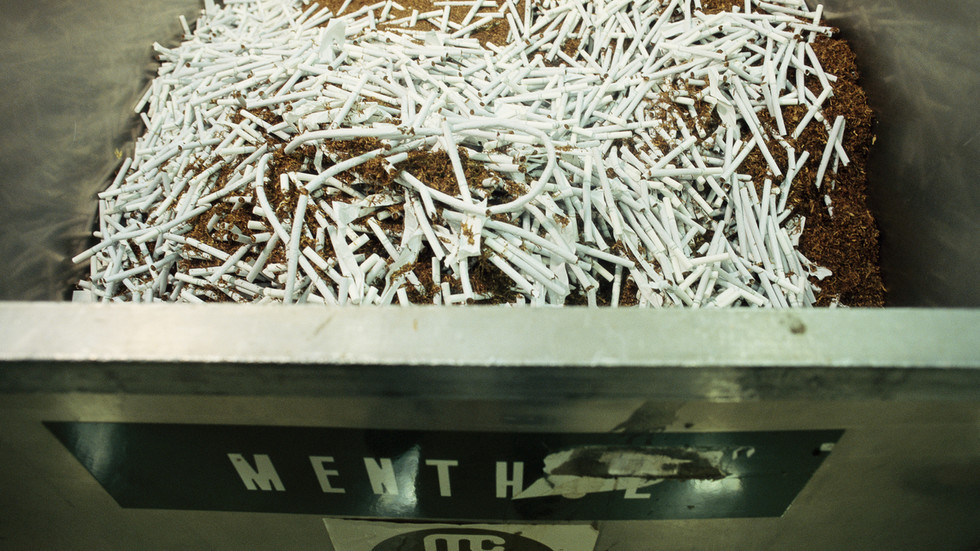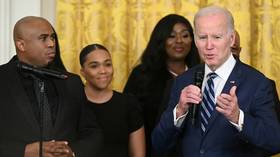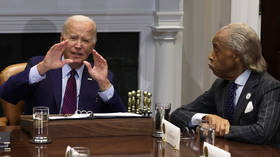
The plan had divided the African-American community, the Democrats’ traditional base

FILE PHOTO: Menthol cigarette production in North Carolina © Mark Peterson / Corbis via Getty Images
The White House has postponed indefinitely the plans to ban menthol cigarettes, after polls showed a drastic drop in African-American support for President Joe Biden ahead of the November election, according to the Wall Street Journal.
About 81% of black smokers used menthols as of 2020, the year when Biden got 91% of the black vote. Recent polls showed only 68% of African Americans planning to support the Democrat this time around, however.
“It’s clear that there are still more conversations to have, and that will take significantly more time,” Health and Human Services Secretary Xavier Becerra said in a statement on Friday, noting the feedback the proposed ban received from civil rights and criminal justice reform groups.
The ban was first proposed in April 2021, as part of Biden’s “Cancer Moonshot” initiative. The White House argued that outlawing menthol cigarettes would help “people of color” improve health outcomes. Menthols account for more than 30% of all cigarettes sold in the US each year, and are the most popular among black and Hispanic smokers.
The plan ended up sharply dividing the Democrats’ voter base, however. Biden’s former domestic policy adviser Susan Rice has argued that delaying the ban “puts more Black lives at risk,” while the National Association for the Advancement of Colored People (NAACP) endorsed the ban on flavored tobacco products as a “social justice issue.”

The American Civil Liberties Union (ACLU) countered that the ban would create a black market for menthols and drive up negative interactions between police and African Americans, all of which would “disproportionately impact people of color, as well as prioritize criminalization over public health and harm reduction.”
Altria Group and Reynolds American, the two largest US cigarette makers, also lobbied against the ban.
Canada effectively banned menthols by 2018 and the EU did so in 2020. A study from the University of Waterloo in Canada based on those bans projected that the White House proposal would cause 1.3 million smokers to quit within two years, including some 380,000 African Americans.

“The science is clear that there will be a massive health benefit from removing menthol cigarettes,” said Mitch Zeller, former director of the Food and Drug Administration’s (FDA) Center for Tobacco Products. Zeller suggested that political considerations were behind the Biden administration’s decision.
“This is a commonsense plan which could have saved hundreds of thousands of lives,” said Congresswoman Robin Kelly, an Illinois Democrat who chairs the Health Braintrust of the Congressional Black Caucus.
Menthols are currently banned in two US states, California and Massachusetts, and over 100 municipalities across the country.




